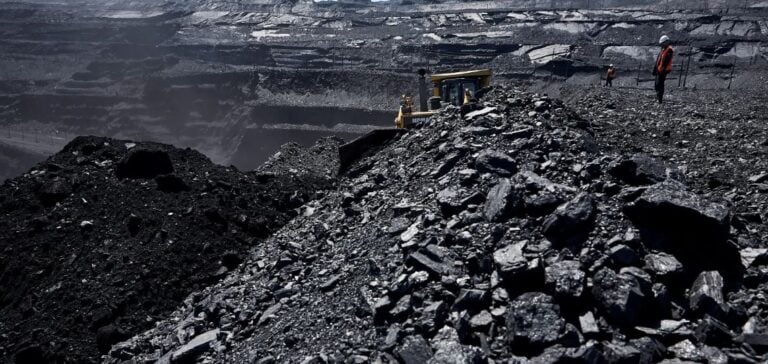China’s coal imports reached 36.04 million tonnes in May, a decrease of 18% compared to 43.82 million tonnes recorded in the same period last year. This decline, marking the third consecutive year-on-year monthly drop, comes amid domestic overproduction and historically low local supply costs, significantly influencing Chinese buyers’ decisions.
Strengthened Domestic Production
Since the beginning of the year, China’s coal production has increased by 7%, totaling 1.58 billion tonnes over the first four months. This rise has contributed to large accumulations of domestic stocks, reducing the need for previously attractive imports. Domestic coal prices at Qinhuangdao, China’s main coal port, have fallen to 632 yuan (about $88) per tonne, the lowest level in four years. This factor has discouraged imports of foreign thermal coal, traditionally sourced from Australia or Indonesia.
Renewables on the Rise
China’s overall electricity demand increased by 3% over the first four months of the year, but the share produced by thermal power plants, predominantly coal-based, fell by 4%. This shift reflects the substantial rise of renewable energies, particularly solar power, which saw an impressive growth of 179% in 2024. Currently, non-fossil energy sources provide more than half of the country’s electricity generation, significantly altering China’s energy supply profile.
Impact on the International Market
The reduction in Chinese imports occurs at a time when thermal coal imports in Asia are experiencing a slight monthly recovery but remain below last year’s levels. China and India, two of the world’s largest thermal coal consumers, directly influence these trends. Additionally, the Chinese government recently called for increased domestic coal reserves, aiming to build stocks reaching 215 million tonnes by early June to ensure market stability.
This strategy, clearly favoring national producers, could continue to impact international coal trade flows in the coming months. Energy market observers are closely monitoring fluctuations in China’s domestic demand, particularly considering potential increases during the summer months related to heightened air conditioning needs. These factors remain critical in determining the future trajectory of the sector and a potential return to previous import levels.






















